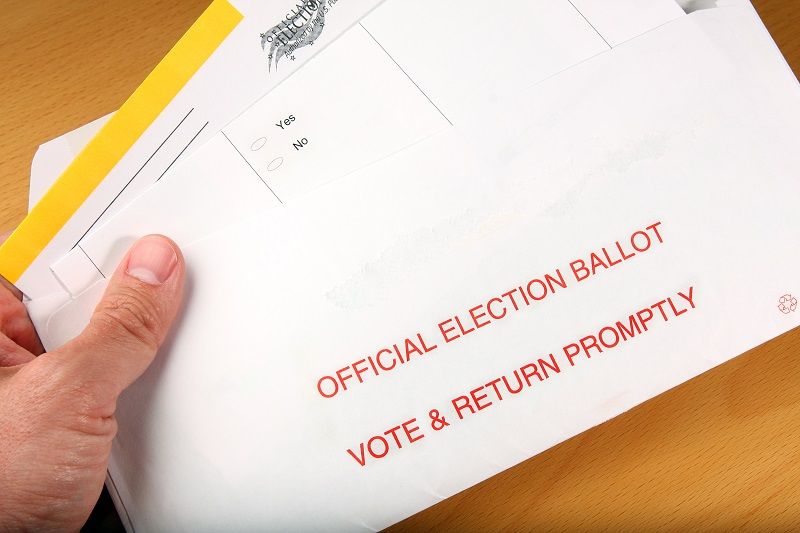By Eric Fruits, Ph.D.
Many Oregonians are now spending as much on health insurance and health care as they are on their mortgage payments. The Oregon legislature recently passed House Bill 2391 (signed by Governor Kate Brown) that will spike these costs even higher.
The law provides $605 million in new funds to the Oregon Health Authority. The money is meant to fill the fiscal hole made by the state’s costly expansion of Medicaid under the Affordable Care Act (ACA). Most of the money will come from taxes on health insurance providers, hospitals, managed care providers, and insurance provided through the Public Employee Benefits Board (PEBB).
Two of Oregon’s largest insurance providers on the ACA exchange have been approved for double-digit premium increases: Kaiser at almost 15 percent and Providence at more than 10 percent. For a 40-year-old with a Silver ACA plan, that amounts to an increased cost of about $500 a year.
The law explicitly allows the new taxes on health insurance providers to be passed on to consumers. With these new taxes, that Silver ACA plan will cost about $625 more in 2019 than in 2018. It’s not just 40-year-olds who will get hit with the insurance tax. Nearly 12,000 college students who buy their own health care as a requirement of attending a public college will pay the tax. Small group employers—such as the local coffee shop, auto repair, or bookstore—will pay the new tax.
Taxes on hospitals will raise the costs of care across the board. Emergency room visits, surgeries, diagnostics, and even childbirth will be hit with this new sales tax on hospital services. The cost of these taxes also will be passed on in the form of higher deductibles and premiums. Even if you don’t go to the hospital, you will be paying the hospital tax through higher insurance prices.
Because of the tax on the PEBB, local governments and school districts will also pay higher prices to insure their employees. These higher costs will lead to further cuts in staffing and services. Oregon’s already crowded classrooms will almost certainly get more crowded as districts struggle to fund the PERS crisis and higher insurance costs.
Medicaid providers are also hit with the tax. Because they do not have the pricing flexibility of other providers, they will have a harder time passing on the higher costs to consumers. Instead, they likely will reduce payments to doctors, nurses, and staff. With reduced payments, these professionals may decide to get out of the Medicaid market, thereby worsening the current shortage of Medicaid providers.
The Oregon Health Authority reports it recently removed nearly 55,000 people from its Medicaid program, after the state found they no longer qualified or failed to respond to an eligibility check. State auditors said in May that each of these Medicaid enrollees costs Oregon, on average, about $430 per month, or more than $550 million a biennium. These new savings alone more than cover the legislature’s tax increases.
While nearly everyone will be hit with the cost of these taxes, Oregon’s middle-class families will be hit the hardest. The Census Bureau reports that more than half of Oregon’s uninsured are adults between the ages of 25 and 64 who are not in poverty. These middle-class Oregonians surely want health insurance but have been priced out of the market. According to estimates by the Kaiser Family Foundation, about half of the individuals buying insurance on the Obamacare exchange get no subsidies under the law. This has been called “the middle-class loophole of no help.” Adding the legislature’s new taxes will drive more of the middle class to take their chances with being uninsured. Is this really the state of health care we want for Oregon?
These taxes can be stopped. StopHealthCareTaxes.com is now collecting signatures to put Referendum 301 on the ballot, allowing voters to repeal about $320 million in new taxes on health insurance and health care.* It would save the average household more than $200 a year in new taxes. Middle-class families will see even bigger savings. The referendum won’t stop the cost of health care from rising, but it will stop things from getting worse than they already are for Oregon’s middle class.
* The Referendum did collect enough signatures and is now Ballot Measure 101 on the January 23, 2018 Oregon ballot. A No vote will keep these taxes from going into effect.
Eric Fruits, Ph.D. is an Oregon-based economist, adjunct professor at Portland State University, and Academic Advisor for Cascade Policy Institute, Oregon’s free market public policy research organization. A version of this article appeared in The Portland Tribune on September 21, 2017.












